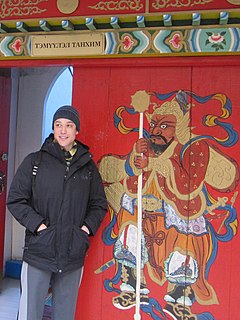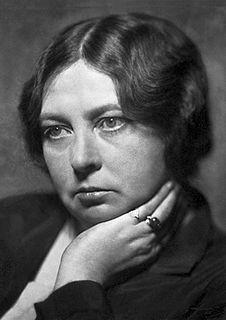A Quote by Edward Said
The central fact for me is, I think, that the [role of the] intellectual... cannot be played without a sense of being someone whose place it is publicly to raise embarrassing questions, to confront orthodoxy and dogma (rather than to produce them), to be someone who cannot easily be co-opted by governments or corporations, and whose raison d'etre is to represent all those people and issues that are routinely forgotten or swept under the rug.
Quote Topics
Being
Cannot
Central
Confront
Corporations
Dogma
Easily
Embarrassing
Embarrassing Questions
Fact
Forgotten
Governments
Intellectual
Issues
Me
Orthodoxy
People
Place
Played
Produce
Publicly
Questions
Raise
Raison D'etre
Rather
Represent
Role
Rug
Sense
Someone
Swept
Than
Them
Think
Those
Whose
Without
Related Quotes
If a man has a sense of identity that does not depend on being shored up by someone else, it cannot be eroded by someone else. If a woman has a sense of identity that does not depend on finding that identity in someone else, she cannot lose her identity in someone else. And so we return to the central fact: it is necessary to be.
From person's movement patterns I can tell a lot of things: if pain is in the body, whether someone is depressed, what age they are. When you see someone whose chest is withdrawn, their deltoids are rolled forward. That's someone whose history has broken them, in a sense. You can recognize that movement of pulling away and protecting the heart across all cultures.
I think in a way the great irony or paradox about America is that it makes it so hard for the sensitive person, the artist, the impressionable person, the person whose raison d'etre is to incarnate the creative will, rather than to just make money, and yet that extreme difficulty that the culture poses for us has created some of the best artists in the last hundred years.
But the fact is that when wine is taken in moderation, it gives rise to a large amount of breath, whose character is balanced, and whose luminosity is strong and brilliant. Hence wine disposes greatly to gladness, and the person is subject to quite trivial exciting agents. The breath now takes up the impression of agents belonging to the present time more easily than it does those which relate to the future; it responds to agents conducive to delight rather than those conducive to a sense of beauty.
The intellectual is not defined by professional group and type of occupation. Nor are good upbringing and a good family enough in themselves to produce an intellectual. An intellectual is a person whose interest in and preoccupation with the spiritual side of life are insistent and constant and not forced by external circumstances, even flying in the face of them. An intellectual is a person whose thought is nonimitative.
All of us cherish our beliefs. They are, to a degree, self-defining. When someone comes along who challenges our belief system as insufficiently well-based - or who, like Socrates, merely asks embarrassing questions that we haven't thought of, or demonstrates that we've swept key underlying assumptions under the rug - it becomes much more than a search for knowledge. It feels like a personal assault.
An intellectual? Yes. And never deny it. An intellectual is someone whose mind watches itself. I like this, because I am happy to be both halves, the watcher and the watched. "Can they be brought together?" This is a practical question. We must get down to it. "I despise intelligence" really means: "I cannot bear my doubts.
A social order bent on producing wealth as an end in itself cannot avoid the creation of a people whose souls are superficial and whose daily life is captured by sentimentalities. They will ask questions like “why does a good God let bad things happen to good people ” such people cannot imagine that a people once existed who produced and sang the psalms. If we learn to say “God ” we will do so with the prayer “My God my God why have you forsaken me?
The environmental agenda seems swept under the rug a lot, and environmentalists are looked at as tree-huggers who aren't dealing with the real issues when in fact someone needs to be keeping an eye on how we're treating the planet. When politicians bring up the environment, they're immediately labeled as being anti-business. But for the sake of the planet on which we live, we need to take the environment into account.
Some people have a knack, for example, of being able to tell when someone's lying to them. They may not know what the truth is, but they can tell when someone is trying to lead them astray or sell them something shady. I think he had that ability to an amazing degree. I also think he thought, without saying it explicitly, that you can convince a crowd of something that's not true more easily than you can one person at a time.






































